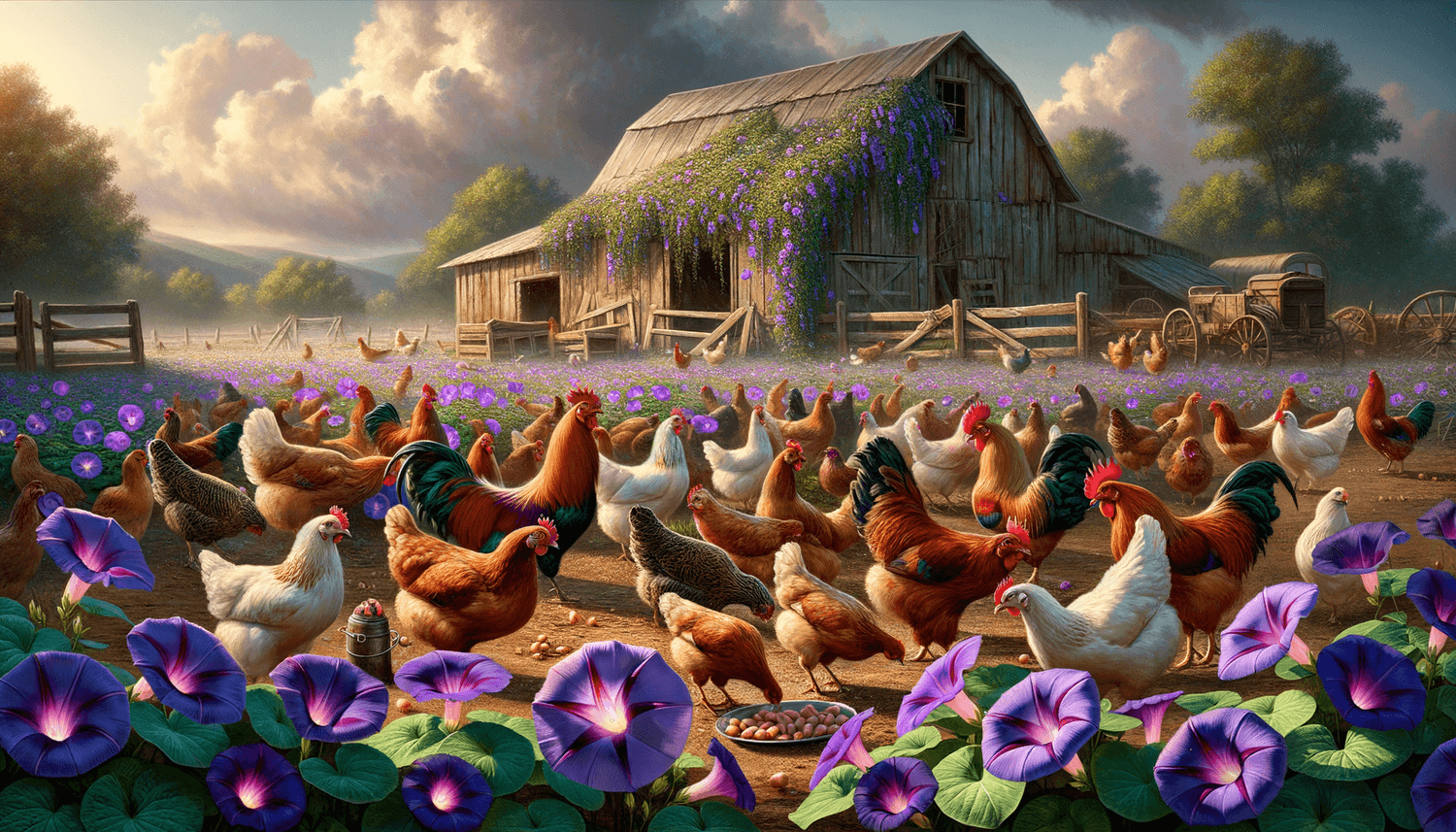No, chickens cannot eat Morning Glory. The Morning Glory plant, including its seeds, leaves, and vines, contains toxic alkaloids which can be harmful to chickens if ingested.
Quick Summary
- Chickens cannot eat Morning Glory.
- Morning Glory contains toxic alkaloids which are harmful to chickens.
- Consumption of Morning Glory can lead to toxicity and health issues.
- It’s important to prevent chickens from accessing Morning Glory in their environment.
Overview of Morning Glory
Morning Glory is a climbing vine known for its trumpet-shaped flowers and heart-shaped leaves. It is often found in gardens for its decorative appeal. The Morning Glory plant family includes several species, some of which produce seeds that contain lysergic acid, a substance related to the production of LSD, and can cause hallucinogenic effects. While beautiful, they are not a suitable food source for poultry.
Benefits and Risks of Morning Glory for Chickens
There are no known benefits of Morning Glory for chickens due to its toxicity. The risks outweigh any potential nutritional value. The toxic alkaloids present in Morning Glory plants can cause digestive issues, lethargy, disorientation, or even more severe symptoms such as liver damage if consumed by chickens. It is crucial to keep these plants out of reach from your flock.
Feeding Guidelines
Since Morning Glory is toxic to chickens, no guidelines are provided for feeding this plant to them. Instead, chicken owners should ensure that chickens do not have access to any part of the Morning Glory plant and remove the plant from outdoor spaces where chickens roam.
Alternatives
If you’re looking for safer plant options to enrich your chickens’ diet, consider safe and healthy alternatives like herbs (e.g., basil, parsley), leafy greens (e.g., spinach, kale), and vegetables (e.g., cucumber, zucchini). Always research and confirm that any new food additions are safe for your chickens before introducing them to your flock.
Expert Opinions
Poultry nutritionists and veterinarians agree that Morning Glory should not be fed to chickens due to its toxicity. While there are no specific studies on chickens eating Morning Glory, the consensus is to avoid it due to the risk of poisoning. Chickens should be provided with a diet suitable for their nutritional needs, and potentially toxic plants must be kept out of their environment.
Frequently Asked Questions
After learning about the dangers of Morning Glory for chickens, you might still have questions. Here are some common inquiries:
What symptoms should I look for if my chicken has ingested Morning Glory?
Symptoms of Morning Glory ingestion can include gastrointestinal upset, disorientation, lethargy, and more severe reactions like liver damage or seizures. If you suspect your chicken has consumed any part of the plant, contact your veterinarian immediately.
How can I prevent my chickens from eating Morning Glory?
To prevent chickens from eating Morning Glory, remove any Morning Glory plants from your garden or any areas where your chickens have access. Consider fencing off the garden or using chicken wire to block access to areas where toxic plants are present.
Is it safe to plant Morning Glory near a chicken coop?
It’s not safe to plant Morning Glory near a chicken coop, as chickens might accidentally ingest the leaves or flowers. The best practice is to keep all toxic plants, such as Morning Glory, a safe distance away from poultry enclosures to prevent accidental ingestion.

















